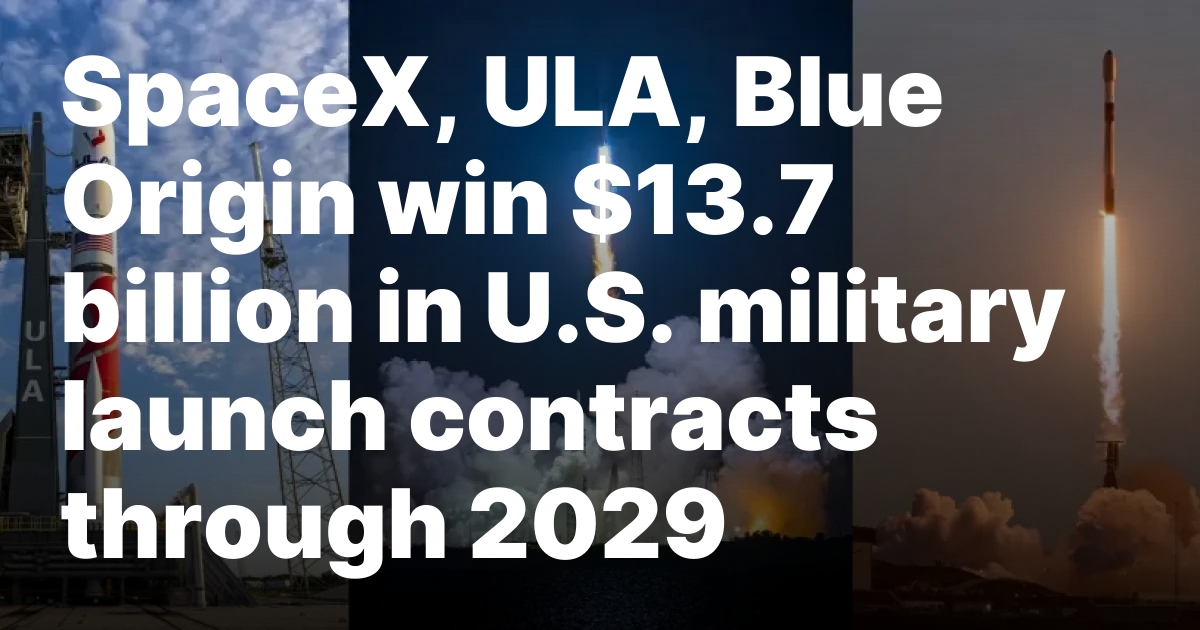The U.S. Department of Defense has awarded SpaceX, United Launch Alliance (ULA), and Blue Origin a combined $13.7 billion in launch service contracts. These contracts, announced by the U.S. Space Force’s Space Systems Command, are part of the National Security Space Launch (NSSL) Phase 3 Lane 2 procurement initiative. This initiative aims to enhance the Pentagon’s access to space for its most sensitive missions.
SpaceX leads with $5.9 billion in anticipated awards, followed by ULA at nearly $5.4 billion, and Blue Origin at nearly $2.4 billion. Collectively, the three companies are expected to perform 54 launches between fiscal years 2025 and 2029.
General Chance Saltzman, Chief of Space Operations for the U.S. Space Force, emphasized that this investment ensures reliable access to space, which is crucial for both economic prosperity and national security.
SpaceX is expected to carry out 28 missions, approximately 60%, while ULA will handle 19 missions, around 35%. Blue Origin, yet to be certified, is scheduled for seven launches starting in the program’s second year, contingent on certification.
Lane 2 focuses on complex launches to high-energy orbits with enhanced mission assurance requirements, such as secure communications and missile warning systems. Missions are typically assigned two years ahead of their scheduled launches, with flights expected from fiscal year 2027 through 2032.
Blue Origin’s inclusion marks a strategic shift, increasing competition among U.S. launch providers. This is the first time the government has named three primary launch providers. Despite New Glenn not being certified, Blue Origin was selected as the ‘third best value provider.’ Officials anticipate certification by the time Blue Origin’s assignments commence.
ULA, a joint venture between Boeing and Lockheed Martin, recently certified its long-delayed Vulcan rocket. The company plans to begin launching its previously awarded NSSL Phase 2 missions later this year.
The Phase 3 acquisition strategy is split into two lanes: Lane 1 for less risk-averse missions and Lane 2 for high-stakes missions demanding elevated performance and security standards.
All three companies must meet stringent mission assurance standards, including joint integration efforts with government teams. Assignments will continue annually each October through the end of the contract period.
These contracts aim to eliminate dependence on Russian-made RD-180 engines and foster a competitive U.S. launch market.
— new from SpaceNews
